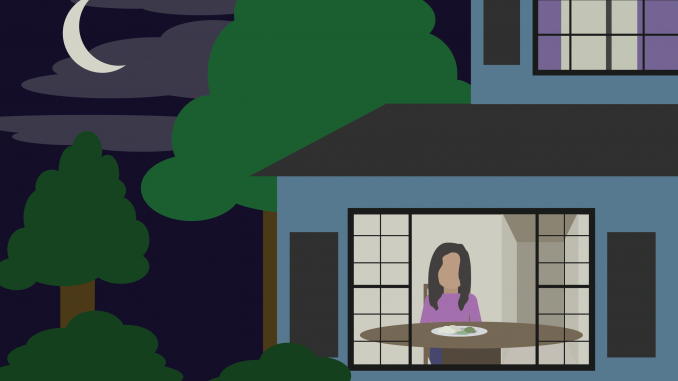
I’ve always had an unsteady relationship with food.
As a child, I was a picky eater. As a teenager, I struggled with an eating disorder for several years.
But there has always been one month in the year where I can reflect on my relationship with food and with my body. It’s through fasting during the month of Ramadan that I’m truly able to take the time to appreciate my body for all the work it does.
Ramadan is the most sacred month of the year for Muslims, the time believed to be when the Quran was revealed. It’s during this month that Muslims fast from sunrise to sunset to remind themselves of their relationship with God and their duty to help people who are food insecure, Vox reported.
While this holy month is meant to be a time of spiritual discipline, extra prayer, increased charity and generosity and intense study of the Quran, it’s also a time for celebration and cherishing loved ones, Vox reported.
In middle school and high school, it was normal for me to sit in the cafeteria during lunch without anything to eat. For me, the challenging part of Ramadan was never the hunger: it was all the extra time I was spending with myself.
Because it’s encouraged to study the Quran, pray more and reduce distractions, I found myself spending more time alone than usual. Although it was a particularly unpleasant realization, it was through these moments alone that I realized I didn’t enjoy my own company because I’m too harsh on myself.
I have my qualms with my body. I have features I’d like to change, but it’s my body: it carries me through the day, and Ramadan never fails to remind me that I need to treat myself better. Changing my relationship with food is just a starting point.
I’ve always understood the value of food. I’ve seen my parents struggle to ensure there was always something to eat at home. I’ve felt how my body shut down when I went days without eating.
Yet, there were days where I couldn’t find it in myself to pick up a fork and knife, days where my family had to thank me when I actually took a bite and swallowed. While I always felt engulfed by the guilt of turning away a perfectly prepared meal, I still struggled to see food as my friend.
My friends often made jokes when Ramadan was nearing about how they were excited to lose weight. While weight loss absolutely isn’t the intent of fasting, it is a common side effect.
I always felt out of place in those conversations because I usually gained weight during Ramadan. For me, the meals at sundown and sunrise were the heaviest meals I ate throughout the year.
I also felt especially out of place at Iftar dinners, which are often large gatherings in which people from the mosque would come together to break their fast. While I was eating more than usual, it was still important for me to keep my calorie intake relatively low, and I couldn’t deal with people questioning why I had such little items on my plate.
I saw these gatherings as unnecessary. I didn’t understand that the simple act of sharing food is what strengthens bonds and unites a community.
I’m not saying that religion is the cure for any disease because there are many times after the month of Ramadan where my relationship with food and with myself receded into unhealthy territory. There are still days where it’s difficult to appreciate myself and moments where I prioritize the number on the weighing scale over my well-being.
As Ramadan begins, I’m reminded that I’ve made it through another year. While I’m constantly mapping out my future plans or problem-solving conflicts that haven’t even occurred yet, in this month, I’m able to simply breathe and reflect on myself. Although my relationship with food and with my body is a work in progress, I’m comforted by the fact that Ramadan is a time for showing kindness to everyone, including myself.



Be the first to comment